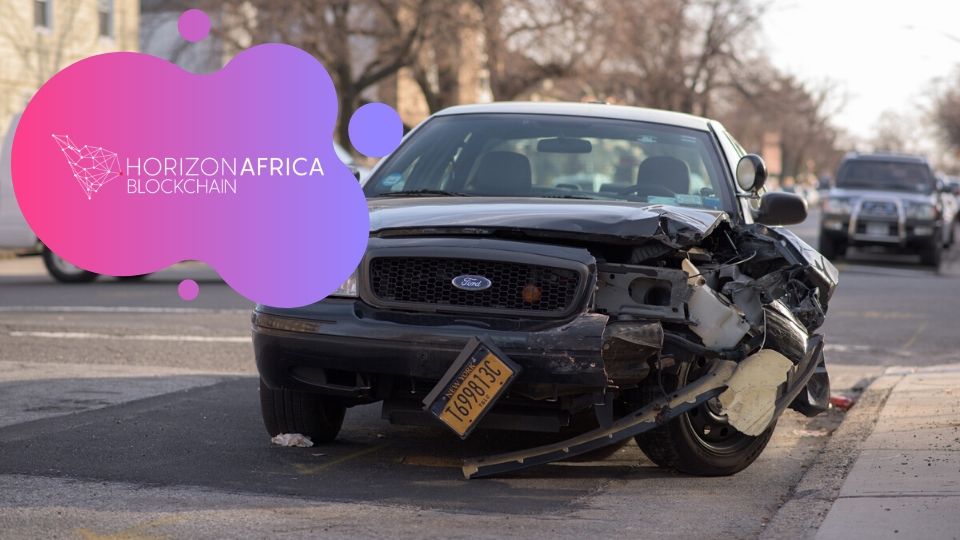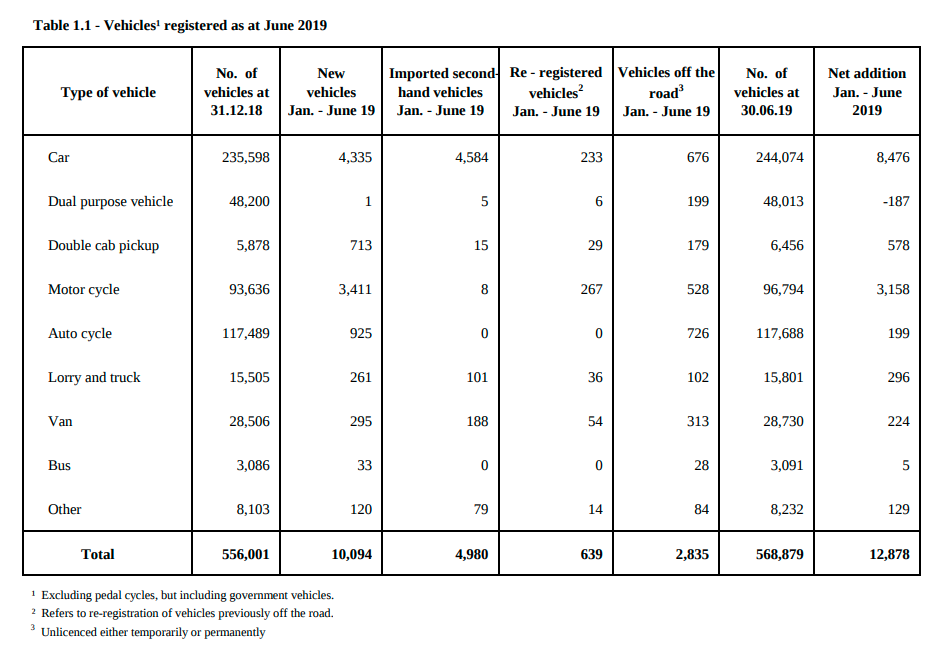- The Blockchain for Africa
- info@horizonafrica.io
Reducing Accidents in Mauritius with Blockchain

Photo by Michael Jin on Unsplash
Mauritius has been experiencing a rise in the number of fatal road accidents in the last few years and the future trend does not seem to be a positive one. 2019 has been among the most fatal years in terms of road accidents along with hundreds of other accidents happening. Although the government and non-governmental organisations have been making a lot of effort in terms of sensitization to curb this dangerous trend, the reality is that there has been no noticeable effect on the reduction of fatal road accidents.
Shocking Statistics
By the end of June 2019, we have seen a 2.3% increase in the number of registered vehicles at the National Transport Authority. The number of vehicles reached a staggering 568,879 vehicles compared to 556,001 at the end of December 2018.
The fleet largely consisted of cars, double cap pickup and dual-purpose vehicles (298,543 or 52.5%) and auto/motorcycles (214,482 or 37.7%). The remaining 9.8% comprised vans, lorries, trucks, buses and other vehicles.
The following table shows a breakdown of the new and old vehicles which were on Mauritian roads in 2019. You can view the whole report in the Road Transport and Road Traffic Accident Statistics - Mauritius - January to June 2019.

During the period of January to June 2019, there was a clear increase in the number of road accidents by an astonishing 16.2% reaching 17,001 compared to 14,634 recorded during the corresponding period of 2018. Among these accidents, 64 were fatal, that is, causing death while in 2018, there were 78 registered cases of fatal road accidents.
The total number of motor and non-motorised vehicles involved in road accidents during the period January to June 2019 was 30,561, representing an increase of 6.5% compared to a figure of 28,709 recorded during the same period of 2018.
During the first semester of 2019, some 69 persons died as a result of road accidents, against 88 during the corresponding period of 2018, showing a decrease of 21.6%.
Current Problems
There are 3 very clear problems in this situation which has been prevalent for years including:
- Bad behaviour on roads by drivers and pedestrians.
- The large number of vehicles on Mauritian roads (more than 500,000 vehicles for a population of 1.3 million inhabitants).
- Limited resources by the police force to monitor drivers.
It is clear to all Mauritians that some drivers have really bad driving behaviours bordering on dangerous and irresponsible attitudes. This is one of the main reasons there are so many accidents. Although the government and other non governmental organisations have made a lot of effort to change bad driving habits and encourage people to be more cautious, there has been no noticeable difference in the way people behave on roads.
The sheer number of vehicles on Mauritian roads also provides a valid reason for the high number of accidents occurring every year. For a population of roughly 1.3 million people, having more than 500,000 vehicles on the roads is a huge road security risk. Coupled with a bad road attitude, this can lead to disasters, as has often been the case.
One of the most efficient ways to reduce the number of accidents is with the use of the Mauritius police force controlling road traffic by setting up roadblocks for regular inspections. This can be very effective in averting accidents and filter out the bad drivers. However, with the large number of vehicles on the roads, it is very difficult to have enough police officers on the roads to properly monitor all of them.
Crowdsourcing and Decentralizing Vehicles Monitoring
In order to create a proper system to reduce the number of accidents on Mauritian roads, the following need to be achieved:
- Have enough people to monitor the driving habits of Mauritians.
- Change the behaviour of Mauritian drivers.
- Reduce the number of vehicles.
With the introduction of the Light Rail System in Mauritius, it is expected that the number of vehicles might reduce in the near future. However, the monitoring and behaviour change requires more innovative solutions. A blockchain-based solution would work as follows:
- Set up a group of drivers who will act as Road Monitors and whose main role will be to monitor other drivers.
- Should they encounter a driver who is driving dangerously (for example, overtaking when they are not allowed to do so), they will record the occurrence on a video cam and submit the following information in their complaint: vehicle registration number, the offense, and the location.
- The National Transport Authority or any other government organisation will then review the complaint, store the information on a blockchain, and then dispense the necessary points reduction or fine to the perpetrator.
- This complaint information will then generate a rating for the perpetrator via a smart contract which can then be used by insurance companies to determine the price of their next insurance renewals.
- To cater for bad or malicious reviews by the Road Monitors, the government authority will have the ability to punish them in case of repetitive invalid reviews. The punishment could be in the form of cancellation of the Road Monitor ‘license’.
- As a reward, Road Monitors will be awarded tokens which can be redeemed to get rebates in their insurance renewals and/or any other facilities offered by the government for recognising the work they are doing to ensure road safety.
With this system, we are crowdsourcing the monitoring part and deploying hundreds or thousands of monitoring officials on the roads to cater for all the different areas in Mauritius, thereby creating a real-time and vast monitoring system - a monitoring system not controlled by a central entity or a government, but instead controlled by a decentralized group of people.
This system also uses the proof of work principle in encouraging the Road Monitors to do their work properly, and get rewarded. Should they do the opposite, they will be punished in terms of no rewards despite the work they did to submit their complaints.



